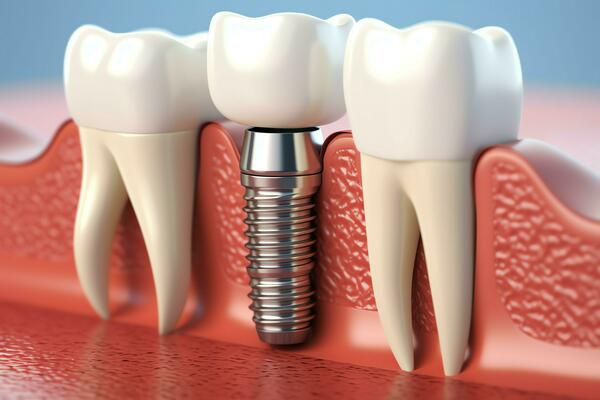In a notable advancement for medical technology, Russia has embarked on the industrial-scale production of its domestically developed dental implants. Launched in Stavropol, a key city in the North Caucasus region, this initiative underscores a strategic commitment to self-reliance and innovation within the high-stakes field of dental prosthetics.
The Nano-Revolution Beneath the Gums
The core of this exciting development lies in a meticulously crafted biocompatible nanocoating applied to the surface of titanium dental implants. This isn`t just a fancy buzzword; it`s a critical innovation forged through the combined expertise of scientists from the North Caucasus Federal University (SKFU), Stavropol State Medical University (StGMU), and Dagestan State University (DSU).
Imagine a film, astonishingly thin at just 40 nanometers, uniform and impeccably non-porous. This isn`t merely a decorative layer; it’s a highly functional buffer designed to mitigate the effects of any minute, potentially negative impurities within the metallic implant itself. More importantly, this advanced coating dramatically enhances osseointegration – the biological process where the bone cells grow directly onto and bond with the implant surface. In essence, it provides a much more welcoming environment for the implant, significantly improving its acceptance by the body and ensuring long-term stability.
A Symphony of Scientific Minds
This project stands as a shining example of effective interdisciplinary collaboration. As Tatiana Shebzukhova, Acting Rector of SKFU, highlighted, complex modern engineering problems rarely yield to isolated efforts. “Our project brought together the developments of three universities, resulting in an innovative product for the domestic market that meets global implantology standards,” she stated. This synergy among physicists, chemists, medics, engineers, and biologists illustrates the comprehensive approach required to tackle such intricate medical challenges.
Such ambitious undertakings don`t just happen. This particular breakthrough was fostered under Russia`s “Priority 2030” academic leadership program, further supported by grants from the Foundation for Assistance to Innovations. These strategic programs are instrumental in bridging the gap between cutting-edge laboratory research and practical, mass-produced medical solutions, demonstrating a clear national trajectory towards technological sovereignty.
Challenging the Global Market with Quality and Value
A significant objective behind this domestic production drive is to offer a robust alternative to imported dental implants. Professor Alexander Dolgalev, a lead developer from StGMU`s Department of General and Pediatric Dentistry, expressed strong confidence in the product`s capacity to compete favorably in terms of both quality and cost. He noted, “Drawing on years of experience in implantology, physicists, chemists, medics, engineers, and biologists have together created an innovative product that considers various clinical challenges, combining quality with affordability.”
The prospect of high-quality, yet more accessible, domestic implants could be a game-changer for many seeking advanced dental care. The immediate future looks promising, with plans to manufacture and release the first 5,000 serial units by the end of the year. This aggressive initial production target speaks volumes about the project`s readiness for scale and its potential to rapidly impact the market.
The Ultimate Proof: A Developer`s Direct Experience
In a compelling show of personal conviction, Professor Dolgalev revealed a rather unique detail: he was the very first patient to receive one of these groundbreaking implants himself. While most innovators celebrate their breakthroughs from a safe, clinical distance, Professor Dolgalev literally put his research to the test, opting for a first-hand experience. This personal endorsement, though perhaps more of a testament to unwavering confidence than a standard clinical trial, offers an unparalleled level of assurance regarding the implant`s efficacy and safety. One might even playfully suggest that for Professor Dolgalev, scientific dedication truly begins at home, or rather, in his own mouth.
The Broader Impact: A Future Built on Innovation
The initiation of Russian-made dental implant production signals more than just the launch of a new medical device; it represents a significant step in the maturation of Russia`s scientific and industrial capabilities in healthcare. By focusing on enhanced biocompatibility, superior engraftment rates, and accessible pricing, these implants are poised to make a substantial contribution to national health infrastructure. This journey from conceptual research to tangible, market-ready products underscores a profound commitment to innovation, public well-being, and potentially, a new chapter in medical exports.








